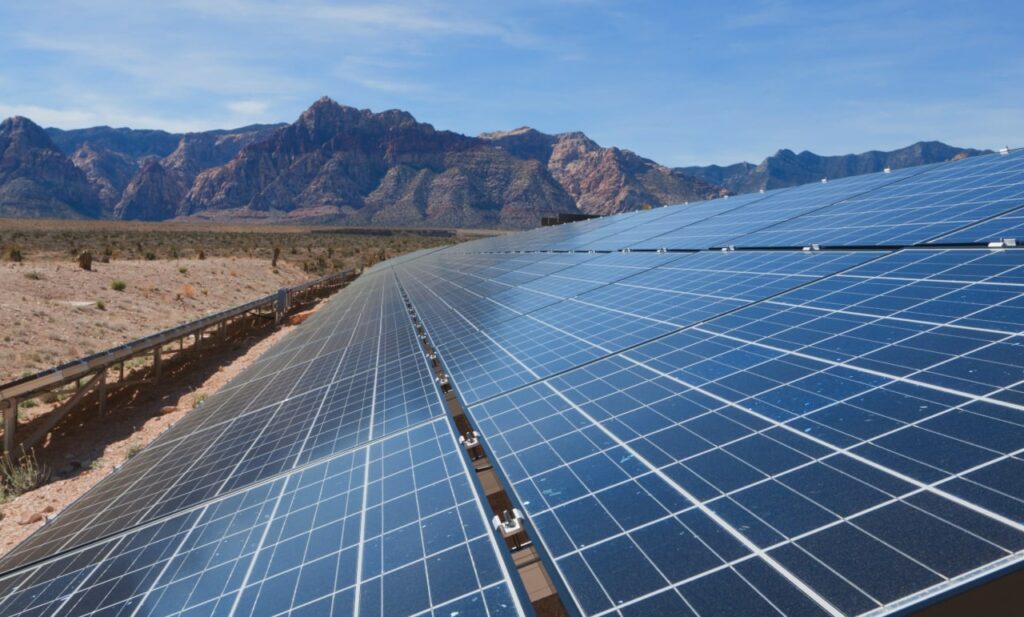
Vanadium flow battery company Invinity Energy Systems has sold a 1.3MWh system to Kinetic Solution for a microgrid project serving a data centre in Arizona.
Invinity has bagged the order for six of its VS3 batteries which will be installed alongside a 400kWp solar PV array at the data centre in the state bordering California and Mexico. Kinetic has paid a deposit and Invinity will start building the batteries shortly for a delivery date in early 2023.
Enjoy 12 months of exclusive analysis
- Regular insight and analysis of the industry’s biggest developments
- In-depth interviews with the industry’s leading figures
- Annual digital subscription to the PV Tech Power journal
- Discounts on Solar Media’s portfolio of events, in-person and virtual
Invinity’s vanadium flow batteries were chosen because of their robustness in high-temperature environments and their ability to perform long duration energy discharge, defined as 4-24 hours, during power outages. Arizona has a particularly hot and dry climate, and a press release said outages are a regular occurrence.
Kinetic will use the microgrid to provide 24/7 renewable power and mitigate the risk of outages for the data centre. The company provides distributed energy solutions, specialising in microgrid infrastructure for commercial and industrial (C&I) sites across the US including data centres, manufacturing sites, distribution hubs and EV charging parks.
The deal will generate investment tax credits (ITCs) for Kinetic thanks to the recently-passed Inflation Reduction Act, the press release said (though ITCs have existed for co-located projects for some time).
“This deal embodies a number of positive developments: the growing awareness of the need to power datacenters with renewable energy, an opportunity to work with Kinetic, an emerging expert in solar microgrids, and the receipt of U.S. government support for energy storage through the Inflation Reduction Act,” said Matt Harper, chief commercial officer, Invinity Energy Systems.
Data centres’ need for a steady supply of power, and the potentially huge commercial ramifications of outages, have made them fertile ground for non-lithium battery technologies which can claim to be more resilient than the industry incumbent (although lithium-ion battery system integrators are still winning orders in the segment).
A Microsoft data centre at an undisclosed location, thought to be in the US, recently installed a battery storage system from liquid metal battery solution company Ambri. ZincFive, one of a handful of companies using the mineral for their battery products, is installing its solution in Wyoming for a local data centre company.
Similarly, iron flow battery company ESS Inc also scored a 400kWh order earlier this year for installation at a data security company’s facility.
Harper recently spoke to Energy-Storage.news about the benefits of gaining key safety certification standards like UL1973 and NFPA855 to commercialisation.






